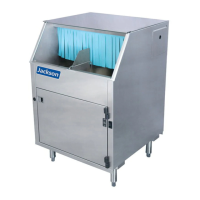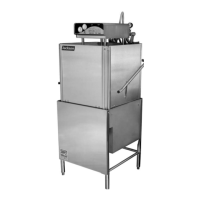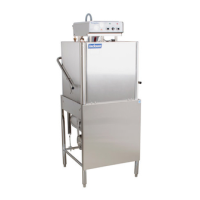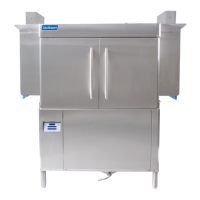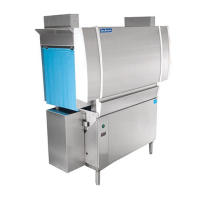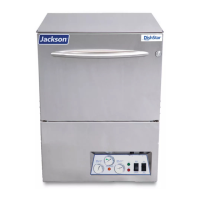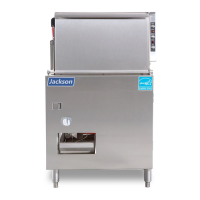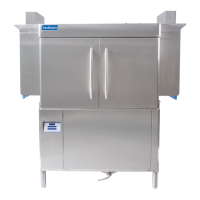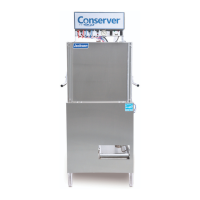07610-002-41-09-F
13
Detergent usage and water hardness are two factors that contribute greatly to how
effi ciently your dishmachine will operate. Using detergent in the proper amount can
become, in time, a source of substantial savings. A qualifi ed water treatment special-
ist can tell you what is needed for maximum effi ciency from your detergent, but you
should still know some basics so you’ll understand what they are talking about.
First, you must understand that hard water greatly effects the performance of the
dishmachine. Water hardness is the amount of dissolved calcium and magnesium in
the water supply. The more dissolved solids in the water, the greater the water hard-
ness. Hard water works against detergent, thereby causing the amount of detergent
required for washing to increase. As you use more detergent, your costs for operating
the dishmachine will increase and the results will decrease. The solids in hard water
also may build-up as a scale on wash and rinse heaters, decreasing their ability to
heat water. Water temperature is important in removing soil and sanitizing dishes. If
the water cannot get hot enough, your results may not be satisfactory. This is why
Jackson recommends that if you have installed the machine in an area with hard wa-
ter, that you also install some type of water treatment equipment to help remove the
dissolved solids from the water before it gets to the dishmachine.
Second, hard water may have you adding drying agents to your operating cycle to
prevent spotting, when the real problem is deposited solids on your ware. As the wa-
ter evaporates off of the ware, the solids will be left behind to form the spotting and no
amount of drying agent will prevent this. Again, using treated water will undoubtedly
reduce the occurrences of this problem.
Third, treated water may not be suitable for use in other areas of your operation. For
instance, coffee made with soft water may have an acid or bitter fl avor. It may only be
feasible to install a small treatment unit for the water going into the dishmachine itself.
Discuss this option with your qualifi ed water treatment specialist.
Even after the water hardness problems have been solved, there still must be proper
training of dishmachine operators in how much detergent is to be used per cycle. Talk
with your water treatment specialist and detergent vendor and come up with a com-
plete training program for operators. Using too much detergent has as detrimental
effects as using too little. The proper amount of detergent must be used for job. It is
important to remember that certain menu items may require extra detergent by their
nature and personnel need to be made aware of this. Experience in using the dish-
machine under a variety of conditions, along with good training in the operation of
the machine, can go a long way in ensuring your dishmachine operates as effi ciently
as possible.
Certain dishmachine models require that chemicals be provided for proper operation
and sanitization. Some models even require the installation of third-party chemical
feeders to introduce those chemicals to the machine. Jackson does not recommend
DETERGENT
CONTROL
OPERATING INSTRUCTIONS
INSTALLATION
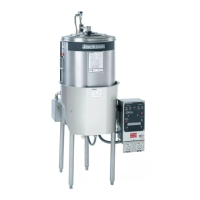
